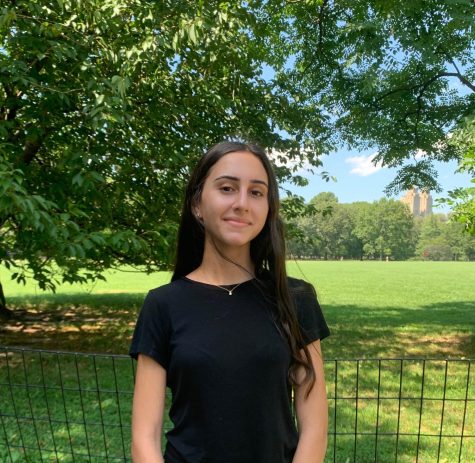Behind the Scenes at SFAC: November Edition
For the second time, the Student Faculty Advising Committee (SFAC) met on November 13, filled with invigorating discussions regarding the student body. Here’s what went down. One member suggested that the school should add more fun and bonding activities to the advisory curriculum so that when there are more serious discussions, kids will feel more comfortable. Another person added that the school should clarify that period B4 is not a free period, and therefore students will be more grateful for the free time when the period is free. With regard to freshman orientation, the question was raised whether orientation should be one or two days. A survey was sent to assess sophomores’ opinions on how they think orientation should be run. Sophomores commonly shared that orientation is not very necessary for sophomores, and one day should suffice, but that it is very necessary for freshman. When the question “Should we get our classes and schedules at orientation?” arose, the responses were unanimously, “yes”.
The next topic reviewed was student-teacher conferences. The discussion focused on the student experience in the conferences and how the school could go about improving the day. One member mentioned: “I polled many students and they said an issue was the way it’s organized — there is more time spent on lines than with the teacher. You wait so long to have a five minute conversation. These lines bother everyone. I think there should also be a second student-teacher conference. First quarter is kind of early. Having a second one would be great — maybe after finals in late January.” Another member asked how removing the sign-up sheets on the doors impacted the experience. While one person said that removing the sheets made for a more hectic experience; another person commented that subjectively, the lines in the auditorium were a lot shorter. The question was raised whether there is a way to do an online sign-up sheet with specific times for students to meet with teachers. Other members felt that the lines were not shorter; rather, in places like the auditorium where multiple teachers are situated, it is easier to navigate and manage time. Someone suggested holding more meetings in larger spaces. Although many students believe that a sign-up sheet would decrease conference day time, it was clarified that whatever system is chosen, students might have to stay in school for an extended period of time. One member added that students like to make their way down to the auditorium and start their conferences at the higher floors. Another person questioned, “Teachers feel like they have to give a test before the meetings. How can we address this?” Someone also added that constant conferences are stressful for the teachers and also for the students. Teachers are required to speak to students without any breaks for a large period of time. The suggestion was made that maybe the school should organize something productive and fun to do for students outside of the meetings. A committee was formed to follow-up all issues raised.
The next topic discussed was sports and spirit at Ramaz. The discussion primarily focused on when and how do sports games get scheduled? What can Ramaz do to enhance the spirit at games? And, how can the game schedule lend itself to student safety? One member said that the amount of spirit displayed by the student body during the recent LA basketball tournament should make us proud. This person advised that Ramaz should start to increase the spirit now, possible by bringing back Saturday night games. At these games there could be cool half time activities, a live-stream, and the G.O. could sell pizza or other food. The next member agreed and stated, “The success of the tournament is something we should play around with. I have never seen such great spirit in my time at the school.” Someone added that it needs to be the right Saturday night, not one with an ACT/SAT the next day. Possibly, a double header would be really great. Additionally, a member said that although games on Saturday night would be great, many students who don’t live in the city may not travel in for a game. Another possibility raised is to have games right after school so students could go home on the late bus. It was also suggested that perhaps the team could leave early from school to arrive at another school at the end of their school day. Similarly, other schools could do that for us. One person responded that it can be really hard for students to miss class. Early games are not a great solution because they are not fair to students on the sport teams. It was added that next year the test calendar should be taken into consideration when scheduling games. A suggestion made was to consider identifying one night, such as Thursday night, as game night, making Friday a day where tests would not be scheduled.
The committee then moved on to discuss how it can improve clubs and club attendance. One person explained that many of the students that attend Ramaz commute from so many different places. Because of the long commute, it can be really hard for these students to take part in clubs and sports teams. Another further explained that the B4 period should be utilized for club meetings. Someone questioned which clubs would meet during the time specified for clubs. If students have conflicts, that could pose a problem. Would every student be required to attend a club or would some have a free period? It was suggested that the school should create different tracks based on interest and then those should be grouped together. Then a student can choose one club from each track so there are no conflicts. This stimulated someone to question the grouping method because some students are in multiple clubs. A participant said, “I think in general it’s difficult for students to attend clubs. If we had time during the day do people think it’s a good idea to put all frees at the same time so instead of a free it’s free and clubs?” Someone added, “I don’t think that living far is why kids aren’t part of those clubs. It’s the extra work.”
The next topic discussed was citizenship reports: Is this a good system? Do we have good follow-up? Do students still receive them? How often we do use them for positive vs. negative? What is the student’s perspective? The reports are discussed in the beginning of the academic year. But, later on in the year, kids don’t really retain this info. Students don’t even know where to receive one. One member stated that teachers never respond to the report so students forget about them. Another stated that maybe the citizenship reports should also be used in positive ways and not only in negative ones. Many of the participants then agreed that they did not know that teachers were even supposed to respond. Another member stated that this participant has personally received a comment in return. A member said that this participant witnessed freshman who were petrified from the report. But, at the end of the day no one really sees the reports. There’s a lack of clarity on what’s going on with citizenship reports. Someone added, “The whole task of writing it is helpful. I think there needs to be a type of consequence.”
The last topic discussed was elevator usage. The conversation covered revisiting the policy for elevator usage, specifically after an assembly or tefillah. Who can use the elevators and when? Is there a way to set the elevators to be on different floors? When do students feel more inclined to use an elevator? What would happen if no elevators where allowed? How often do elevators become a reason for class tardiness?
The conversation began with someone stating that when guests visit Ramaz they cannot fit in the elevator because students are pushing. One member advised that maybe some restrictions should be placed on what floors the elevators can go to. Maybe students shouldn’t be allowed to use the elevator for one flight. Someone added that even if there are no new rules instituted, maybe we should increase awareness of elevator etiquette with signs. Another person suggested that the school should make a PSA video about how to act in an elevator. Someone added, “These things can boil down to positive peer pressure.” Hopefully students can convince others to behave appropriately in the elevators. In addition, a member expressed the hope that the agenda of cleanliness in the library and lounges would be addressed soon. Someone else stated that some teachers say, “Get out, please,” and students wait a second before getting out, which is not a positive reaction. Someone then clarified that there are two issues here- encouraging student positivity and also how the school should best use the elevators.
The meeting concluded with the statement that SFAC is about people coming together. Committee members were encouraged to be proactive and speak to classmates concerning all issues. Follow-up on discussions raised will take place at the next committee meeting.

Caitlin Levine loves journalism, is an avid writer, and is thrilled to be an editor-in-chief of The Rampage. Caitlin has actively contributed to The Rampage...



